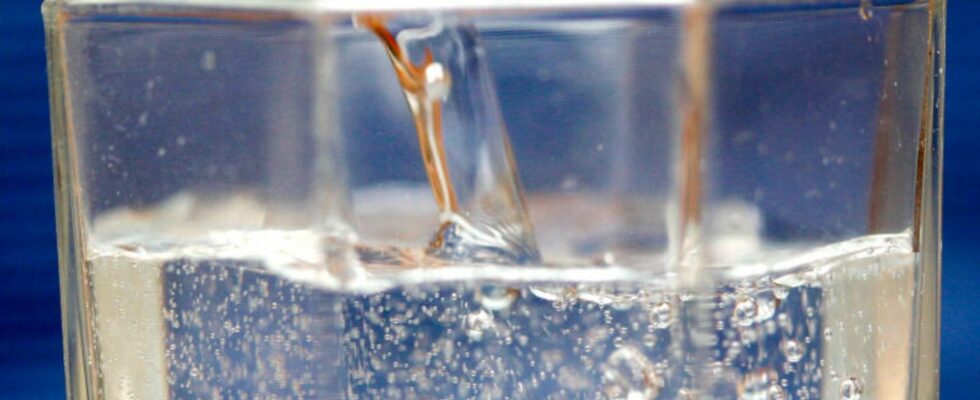“Eco test”
Carbonated mineral water in the test: 14 were contaminated with questionable substances, one failed
“Öko-Test” shows: Not all mineral water is good mineral water
© Roland Weihrauch/dpa
Mineral water is essential. “Öko-Test” tested 54 varieties with carbon dioxide. The quality wasn’t right for everyone.
This article first appeared on ntv.de
The Germans quench their thirst massively with mineral and medicinal water. The body should also go with it Minerals are supplied. These come from rock layers through which rainwater has seeped to the source. On the way there, the water can absorb minerals. Unfortunately, it also absorbs degradation products from pesticides, uranium and nickel.
“Eco test” has examined 54 classic mineral waters, with prices ranging from 0.18 to 1.25 euros per litre. These include five with organic certification and a total of ten that are suitable for preparing baby food.
When making the selection, the focus was on including products from all over Germany. There are 800 recognized mineral springs in this country. Due to the geographical distribution of the wells, significantly more water from southwest Germany was represented. In general, according to the law, mineral water must come from underground water sources that are protected from contamination.
“Eco-Test”: A product is “defective”
All mineral waters were tested in the laboratory for heavy metals, pesticide residues, nitrate, sweeteners (which, among other things, enter the wastewater and thus the water cycle via human excretions) and other residues. Infant water and organic waters were also tested for nitrite, fluoride, sulfate, sodium and radionuclides. The stated levels of all mineral waters with special claims regarding certain mineral, nitrate and nitrite contents were also checked.
Result? Most of the products were convincing in the test, but in 14 mineral waters the commissioned laboratory found substances that “Öko-Test” criticized. In addition to boron, nickel and uranium, sweeteners and pesticide degradation products were also included. The “Marius Quelle Classic” from Rietenauer Mineralquellen failed with a “poor” rating, mainly due to increased boron levels.
26 mineral waters are “very good”
According to the Federal Office for Risk Assessment (BfR), long-term studies in animals have shown developmental and reproductive toxic effects caused by boron compounds. For this reason, the BfR recommends that boron in mineral water be based on the limit value of the Drinking Water Ordinance, which defines the legal requirements for tap water, and not on the significantly higher value stipulated in the Mineral Water Ordinance. The testers also followed this recommendation. For reasons of preventative consumer protection, exhaustion of more than half of the drinking water regulation limit led to a devaluation. A pesticide degradation product was also detected in the water.
Hidden sweetness
Healthy? No way! Öko-Test uncovers sugar tricks in branded products
Fortunately, 26 mineral waters were also rated “very good” in the test. These included: “Nassauer Land Classic” (0.43 euros per liter), “Lichtenauer Mineralquelle Spritzig” (0.54 euros), “Burgwallbronn First Class Classic (0.60 euros), “Selters Classic” (0, 80 euros), “Christinen Spritzig” (organic, 0.87 euros) and “Gerolsteiner Sprudel” (1.01 euros).

